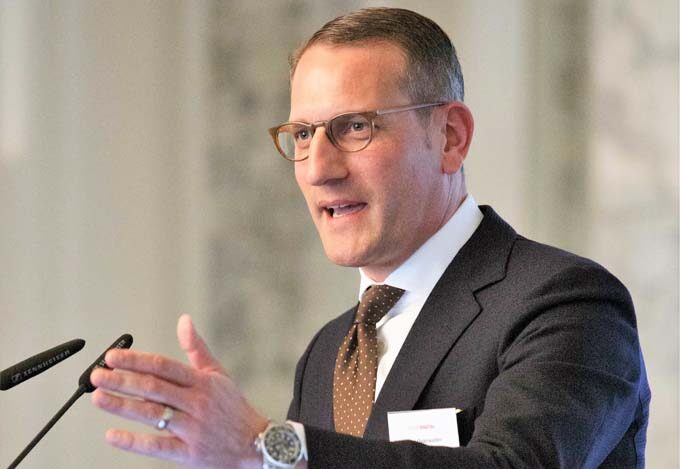Second Swiss Cyber Security Days (SCSD) met with great interest
Nearly 2,700 people attended the Swiss Cyber Security Days 2020 (SCSD), held Feb. 12 and 13 at Forum Fribourg. With an increase of 20 % in the number of visitors compared to the previous year, 70 top-class speakers and 120 exhibitors, the result exceeded the expectations of the organizers, according to reports.

With its second edition, the Swiss Cyber Security Days have established themselves as the reference platform for cyber security in Switzerland. "Apart from the international participants, the origin of the visitors - 50 % from German-speaking Switzerland, 40 % from French-speaking Switzerland and 10 % from Italian-speaking Switzerland - reflects the national character of our event," says Béat Kunz, CEO of SCSD. "Once again, we have succeeded in building bridges across the cyber-Rösti divide."
Cyber threats lurk everywhere
In almost all studies that ask about the greatest risks to society and the economy, cyber threats rank in the top three, alongside climate change and geopolitical threats. Alongside many new welcome achievements, the rapid digital transformation has also led to an enormous variety of threat scenarios. In a world where more and more objects are interconnected, information technology is becoming a critical infrastructure. The SCSD want to contribute to the controlled and secure development of digitalization, according to the organizers' goal. During the presentations of the forum program, nationally and internationally renowned experts spoke about a wide range of topics such as hyperconnectivity, 5G, the train of the future and the Internet of Things.
Decisive human factor
How well are Swiss companies armed against cyberattacks? Daniel Nussbaumer, head of the cybercrime department of the Zurich cantonal police, does not give companies a fundamentally bad report card. Nevertheless, he says, companies are still too often surprised by cyber incidents. "If attackers want to get into a company, they usually succeed," Nussbaumer said. Nicolas Mayencourt of Dreamlab Technologies points out that when it comes to increasingly perfect forgeries, such as of e-mails, all sensitization is no longer of any use. Common sense is increasingly called for. So: If an e-mail from your boss - even though it seems very real - doesn't seem quite "kosher," it's better to ask too many questions...
When you look at possible threat scenarios of the future, you might start to get scared. AI-controlled facial recognition coupled with automated decisions about "good" and "evil" with corresponding consequences: It's unthinkable if a machine could suddenly give a kill order. Ideally, a human being would still have to remain as the final moral authority, so the demand goes.
Swiss Cyber Security Days for exchange of experience
An exciting aspect for SCSD visitors was the exchange of experiences with companies that have already experienced major cyber attacks themselves. One of these was the global logistics service provider Maersk, which was hit by the "notpety" malware in 2017. For days and weeks, it took painstaking manual work to find out again where which shipping container was at any given time and what it contained. Worldwide - around 25 percent of the global flow of goods is connected in some way with Maersk - the movement of goods was affected by this attack. Or the example of Wetzikon Hospital, which was affected by the "emotet" malware, showed how cyberattacks can no longer simply damage IT infrastructure, but can become a direct threat to life and limb. The exchange of such information between companies, emergency services, the armed forces and political authorities was the main focus of this year's SCSD.

Training the cyber specialists of tomorrow
As the most important innovation of the 2020 edition, the SCSD placed a special focus on training and innovation. Switzerland currently has a shortage of around 40,000 cybersecurity experts. "Creating adequate training courses is crucial," explains Doris Fiala, president of the SCSD. "Cybercrime has already caused financial damage of 5 billion francs in Switzerland, and the risk is increasing every day." Béat Kunz adds, "This year we offered a special Education and Innovation Pavilion. By bringing young people and universities together, we hope to contribute to the education of young Swiss talent." The examples mentioned showed that the problems created by cyberattacks could only be solved with a high level of human resources. As part of the free program for students, 300 people now took the opportunity to discover the various Swiss universities and universities of applied sciences at the Cyber Education Stage and to meet innovative start-ups at the Swiss Pavilion for Cyber Innovation, which was organized in collaboration with innosuisse.
Combating cyber risks is international
A look at the international perspective concluded the SCSD. A high-level international panel in collaboration with the World Economic Forum's Centre for Cybersecurity (C4C) brought together Sir Rob Wainwright, Senior Partner at Deloitte and former Director of Europol; Andy Powell, CISO at MAERSK; Alois Zwinggi, Managing Director of the World Economic Forum and Head of the Centre for Cybersecurity (C4C); Monique J. Morrow, President of The Humanized Internet and the VETRI Foundation; and SCSD President Doris Fiala. The speakers discussed opportunities for global cybersecurity cooperation and the opportunities and risks of international digital connectivity.
The next Swiss Cyber Security Days will take place on March 10 and 11, 2021, again at the Forum Fribourg.









